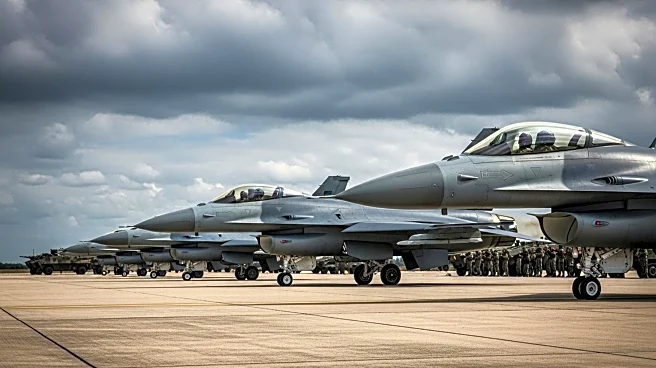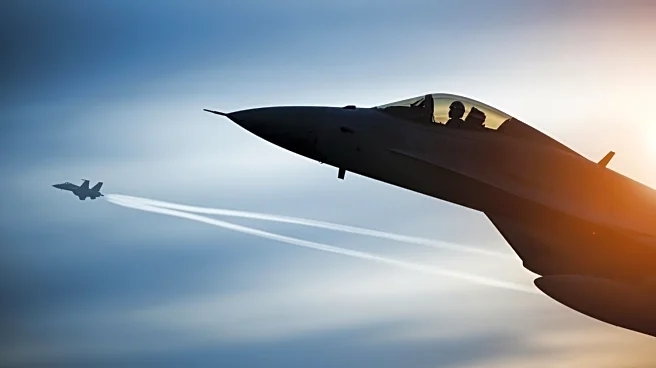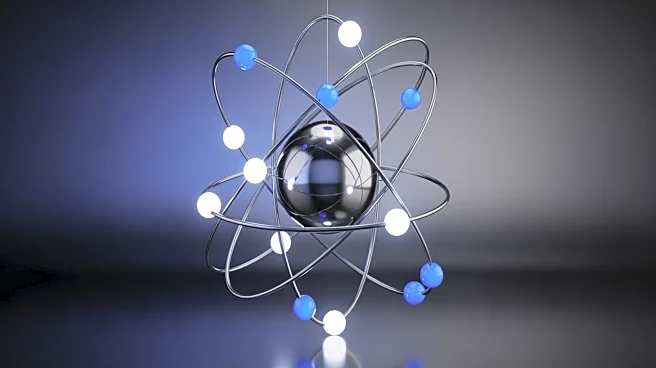What's Happening?
European defense ministers have pledged to enhance support for Ukraine following a Russian air assault on Kyiv that resulted in 23 fatalities and significant damage to a European diplomatic compound. The attack has intensified calls for tougher measures against Russia, including seizing frozen assets and imposing further sanctions. Discussions among the 27-nation bloc have focused on increasing defense supplies to Ukraine and contributing to postwar security guarantees. A coalition of 30 countries, including European nations, Japan, and Australia, has committed to supporting these initiatives. The U.S. has urged Europe to take on the majority of the security burden for Ukraine.
Why It's Important?
The escalation in support for Ukraine by European defense ministers signifies a critical shift in international efforts to counter Russian aggression. This move could bolster Ukraine's military capabilities and strengthen its position in ongoing peace negotiations. The involvement of multiple countries in providing security guarantees highlights the global impact of the conflict and the necessity for a coordinated response. The U.S. decision to approve a significant arms sale to Ukraine further underscores the strategic importance of supporting Ukraine's defense. The situation poses challenges for European unity, particularly with Hungary's veto blocking substantial financial aid.
What's Next?
The European Union is considering further sanctions and measures to pressure Russia into ending the conflict. The U.N. Security Council has scheduled an emergency meeting to address the airstrikes, and discussions with the Trump administration are ongoing regarding mediation efforts. European Commission President Ursula Von der Leyen is touring EU nations bordering Russia to assess defense capabilities and strengthen regional security. The potential deployment of European troops in Ukraine to monitor peace agreements remains under consideration, with military chiefs exploring operational frameworks.
Beyond the Headlines
The attack on Kyiv and subsequent diplomatic responses highlight the complex geopolitical dynamics at play. The EU's consideration of seizing Russian assets raises ethical and legal questions about international property rights and the use of economic leverage in conflict resolution. The involvement of non-European countries like Japan and Australia in the coalition reflects the broader implications of the conflict on global security and economic stability. The situation also underscores the challenges of maintaining European unity in the face of differing national interests and political stances.








